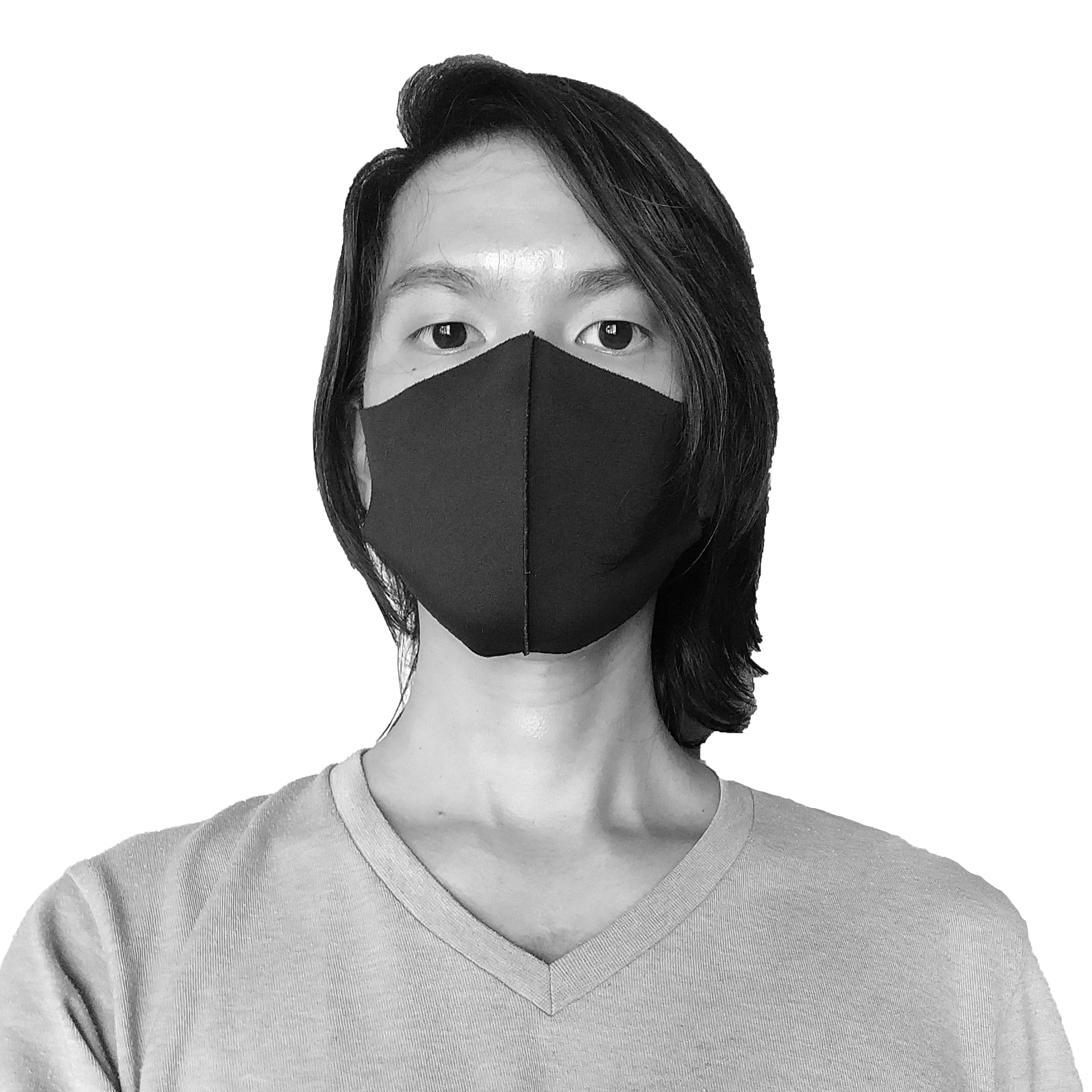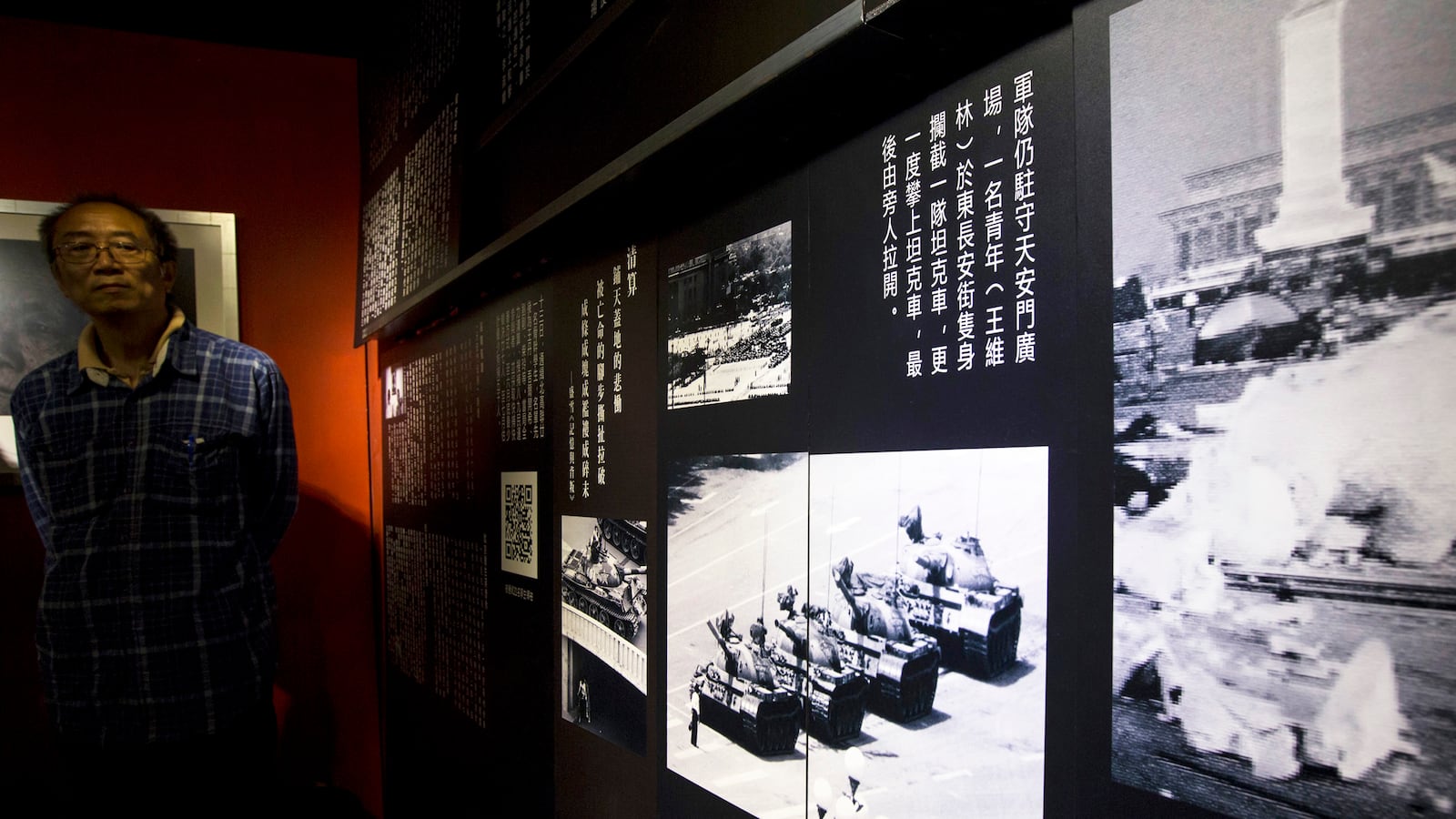HONG KONG, China — The staff at a new museum in Hong Kong has all the typical qualifications required of caretakers and guides, but they also need thick skin to deal with a particularly vocal breed of haranguers. The collection is a labyrinthine exhibit about the Tiananmen protests in 1989, including photographs, video footage, and a small library pertaining to the student-led campaign. And some visitors take umbrage: “What you are doing here is shameful and greedy,” a detractor said one recent Saturday morning, speaking loudly enough for everyone inside to hear her. “You are forcing the wrong message onto the public and disrupting daily life!”

The message is merely one of memory. On June 3 and 4, 1989, Chinese leaders ordered troops to open fire on unarmed pro-democracy demonstrators and dispatched tanks to quell the protests. Hundreds died in the attacks, but Chinese authorities have never provided data on the death toll from the crackdown.
Even though there is a plethora of testimonies from eyewitnesses, information about what happened at Tiananmen is restricted in Mainland China. Web searches for “June 4” can result in a temporarily severed Internet connection, and queries for “Tiananmen” yield touristic shots of the Beijing landmark. Textbooks in China contain little information about what happened, if any. Those born after 1980 often know nothing about what happened that day, and have generally been brought up to be apolitical.
Even though discussion of the events of June 4 remains taboo in Mainland China, Hong Kong has a different set of laws that guarantees broader personal freedoms, including the freedom of speech. The staff at the museum carefully stress that the periodic harassment comes from private individuals who do not represent the interests of pro-Beijing organizations. However, occasional verbal sparring is not the only opposition they face.
The June 4th Museum is housed in 800 square feet of renovated office space on the fifth floor of a commercial tower. The location was purchased for $1.26 million, and a public announcement made that this fairly out-of-the way venue would serve as the museum’s permanent location. But weeks before it opened its doors to the public, it drew small public protests and the owners’ committee of the building overwhelmingly voted against the museum’s operation, stating that the premises can only be used as office space. (Twelve floors above the museum is a shop that sells mobile phones. That store has not faced similar opposition in its business.) The owners’ committee has since filed a lawsuit against the museum claiming that the property is being misused, and that it should be shut down. The move was backed by 54 out of 60 votes during a committee meeting.
Despite these hurdles, the museum continues to attract visitors. Museum staff estimate that half of their visitors are from Mainland China. “Their interest in the exhibit is much stronger,” one staffer said, “and they typically stay for more than an hour to read and watch everything we present, particularly the footage of interviews with the Tiananmen Mothers.”
The Tiananmen Mothers is a pro-democracy activist group formed by the parents, friends, and relatives of the victims of the massacre. They advocate a reversal in the Chinese government’s position regarding the Tiananmen protests. Prominent members have been placed under surveillance or house arrest, and were warned against speaking to foreign media and human rights organizations.
When tourists from Mainland China enter the exhibit, it is often the first time they are presented with a trove of information relating to the Tiananmen protests. After the tour, they purchase T-shirts, postcards, mugs, and USB flash drives preloaded with historical documents and images relating to the June 4 demonstrations. They may not be able to wear or use those items in public when they return home, but to buy them reflects an awareness that is typically stifled in China.
Mr. Chen is from northeast China, and travels to Hong Kong on business several times a year. During his most recent visit, he set aside a few hours to visit the museum. He is conscious of what happened 25 years ago in Beijing, and has tried to search for footage and reports about the June Fourth Movement. Even though he uses a VPN connection, his Internet is cut off whenever he makes the relevant web queries. When he finally set foot in the museum, he was able to confront a wound in China’s contemporary history.
The June Fourth incident “has been erased from public discourse,” said Mr. Chen. “The authorities want us to act like we have amnesia. People in Hong Kong and abroad can talk about it, but if the discussion took place one train ride away”—in Shenzhen, the Mainland Chinese city bordering Hong Kong—“then we could get arrested. This is one of the major division points between those who have never left China and others who have been overseas.”
Before Mr. Chen left the museum, he signed a condolence book by the corner library.
The interpretation of the Tiananmen crackdown remains a charged issue in China, both politically and emotionally. Former Chinese president Yang Shang Kun said in 1989 that the Chinese military must resort to all means to clear out the student protesters, but publicly reversed his position nine years later and called the June 4 incident the most serious mistake of China’s Communist Party. Then again, the Chief Executive of Hong Kong, Leung Chun Ying, condemned the actions by the “Chinese Communist rulers” years ago but has gradually reversed that view during his ascent on the political ladder.
Popular sentiment is a mixture of mourning and commemoration. A candlelight vigil takes place in Hong Kong every year. Recent turnout has been massive, with over 150,000 people gathering for the ceremony even when there were torrential downpours. This year, the condolence book from the June 4th Museum will be burned in a ceremony of remembrance. A few hundred names, including Mr. Chen’s, will be cast into a flame. “I will not be in Hong Kong for the vigil,” he said, “but at least I could leave my name, and the day will weigh heavy all the same.”




